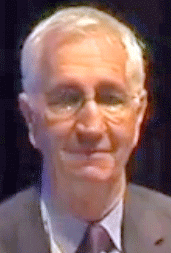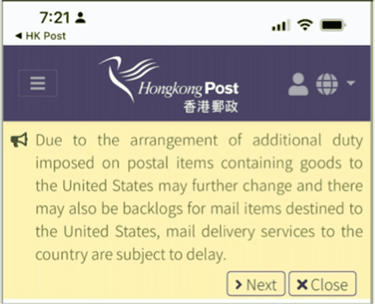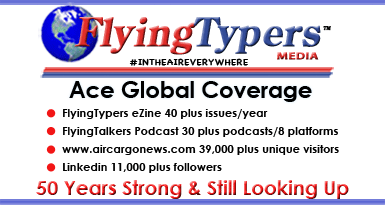|
DE MINIMIS MAXIMA
 Let
us start our in-depth consideration of the de minimis regime with a quote
published by Ms. Cindy Allen, CEO of Tradeforcemultiplier:
“If the option to utilize de minimis
was eliminated for goods, large marketplaces may structure the transactions
differently for transportation, sale, and entry declaration to reduce
costs. They would consolidate the merchandise on one entry per conveyance.
They would establish a U.S. based entity, and a U.S. warehouse location,
which some of the large online companies have already done. They would
then structure the sale to be between the foreign online retailer as the
seller, their own U.S. company as the buyer, and the goods would be delivered
to the U.S. based warehouse. The sales to the individuals would be considered
a domestic transaction as it takes place after the goods have arrived.
The regulations state that the seller, buyer and consignee must be reported
to CBP on the transaction. In this scenario the reporting parties would
be the foreign marketplace seller, its U.S. company serving as the buyer,
and its U.S. warehouse as the consignee recipient. This allows the seller
or importer to report the shipment on one entry to CBP, instead of thousands
of individual entries. It also reduces the brokerage costs associated
with the customs entry.”
This is the precise language that emerges from the very
careful and thoughtful study provided to us by Cindy Allen. Let
us start our in-depth consideration of the de minimis regime with a quote
published by Ms. Cindy Allen, CEO of Tradeforcemultiplier:
“If the option to utilize de minimis
was eliminated for goods, large marketplaces may structure the transactions
differently for transportation, sale, and entry declaration to reduce
costs. They would consolidate the merchandise on one entry per conveyance.
They would establish a U.S. based entity, and a U.S. warehouse location,
which some of the large online companies have already done. They would
then structure the sale to be between the foreign online retailer as the
seller, their own U.S. company as the buyer, and the goods would be delivered
to the U.S. based warehouse. The sales to the individuals would be considered
a domestic transaction as it takes place after the goods have arrived.
The regulations state that the seller, buyer and consignee must be reported
to CBP on the transaction. In this scenario the reporting parties would
be the foreign marketplace seller, its U.S. company serving as the buyer,
and its U.S. warehouse as the consignee recipient. This allows the seller
or importer to report the shipment on one entry to CBP, instead of thousands
of individual entries. It also reduces the brokerage costs associated
with the customs entry.”
This is the precise language that emerges from the very
careful and thoughtful study provided to us by Cindy Allen.
You could argue, reading this statement,
that this is more or less the picture of U.S. and international trade
before eCommerce kicked in. Well, in a way this is a truism. I remember
the discussions regarding de minimis that were taking place in Brussels
and in Washington, in particular after 9/11, and we all know how it went:
U.S. consumers won and the middleman lost… or not? In reality there
has been just one winner and that is the guy who sits on the big data
that everyone seems to want. I am not sure that this guy is the U.S. consumer,
or any other consumer for that matter, even though they actually produce
the data.
Fact is that, in a profoundly deregulated
trading environment, the combination of novel technology, low access barrier
and a strong drive to cost-cutting, enabled by globalisation, transferred
a large part of the purchasing power from the shopping mall to eCommerce.
All of a sudden now, everybody talks about
de minimis, and for a reasons. We all know why we have become acquainted
with this concept: one of the first moves of the Trump administration
was the adoption of an Executive Order to abolish de minimis, at least
in the way that was implemented in the USA. Then the order was moderated
with some diplomatic language explaining that the USA were not ready for
the abolition of de minimis at once and that would take time. Today it
would be really difficult to set a date when the change actually happens,
if ever . . . The reasoning behind the E.O. comes from
CBP own resources,
suggesting the de minimis rule was not always working in the best interest
of the nation . . . Actually, as most freight forwarders
had observed for years, it was facilitating trade in a way that could
make illicit trade indistinguishable from legitimate trade. The different
approach in policy appears to stem from one question: is it a risk with
taking to foster trade and development? If so, whose trade and development?
In fact, Cindy Allen starts her document
with a rather interesting observation: “Last
summer, the current Department of Homeland Security (DHS) Secretary Alejandro
Mayorkas, called for Congress to restrict the importation of goods under
$800 without paying duties and taxes. Current ‘de minimis is built
on a false premise, that low value means low risk,’ he was reported
as saying. He then indicated that if the audience could accompany U.S.
Customs and Border Protection (CBP) officers and see what the agency discovers
including narcotics, ghost guns, and additional contraband, they would
be astonished.”
Interesting: this is precisely what we were
arguing in Brussels about twenty years ago, representing freight forwarders
against the many others who were anticipating on the exceptional surge
of parcel transportation. I was then advocating for a limit that made
sense, something in between extremes . . . Personally,
I have always thought USD$800 was too high a limit, but then again where
do you put the bar? I was then advocating for security measures to remain
affordable and equitable, no matter what size the shipment had. It does
not require much study to find out what happened, in particular in the
USA. It could also be argued that, in several years, nothing particularly
severe happened in the USA, at least not as a direct consequence of the
de minimis rules. It is not easy to say who was right and who was wrong.
One of our greatest writers in Italy, Alessandro Mazoni, wrote in his
masterpiece the Betrothed
(Promessi Sposi) this statement: “Right and wrong are never
divided with such a clear cut that each side has only one or the other.”
Maybe moderation is what is required?
I do not think anyone has the appetite to
try and turn the clock backward, but one could argue that international
trade has nothing to gain from going from one extreme to another. Horace’s
quote “est modus in rebus”, i.e. everything in proportions,
applies to this predicament perfectly. I wonder whether we have ever learnt
that lesson or we continue with an endless samsara of excesses.
Now one could ask a legitimate question:
what is the ‘right’ approach to a negligible value from a
Customs point of view, bearing in mind that Customs is also the place
where safety and security first assessment takes place?
Perhaps we can have a look at what happens
in the rest of the world, as opposed to the U.S. rule. In a recently published
(Feb 6th) UNCTAD document
regarding eCommerce in developing counties, we can read the following
statement: “Countries have different
types, levels and thresholds of de minimis. Each country’s regime
reflects its trade, fiscal and monetary policy priorities. In developed
countries, significant variation exists. While some countries implement
a single de  minimis
threshold, others implement multiple thresholds for different tax categories.
Some countries exclude commercial transactions and apply the de minimis
threshold only to certain types of transactions. The growth in e-commerce,
both in volume and in number of “low-value” transactions,
has transformed the landscape, raising concerns among governments over
potential revenue losses and unfair advantages afforded to foreign suppliers.
Some jurisdictions have found VAT relief for low-value consignments to
be going against VAT neutrality, offering unfair competitive advantages
to non-resident sellers (OECD, 2015). Countries in the EU, for example,
which implemented a common de minimis regime with a threshold of €150
(USD$165) for customs duties later implemented another de minimis threshold
for VAT of €22 (USD$24). This was primarily aimed at curbing revenue
losses caused by e-commerce. Under the existing system, goods imported
into the EU valued at less than €22 by non-EU companies were exempt
from VAT. This exemption was lifted in 2021, so that VAT is now charged
on all goods entering the EU. minimis
threshold, others implement multiple thresholds for different tax categories.
Some countries exclude commercial transactions and apply the de minimis
threshold only to certain types of transactions. The growth in e-commerce,
both in volume and in number of “low-value” transactions,
has transformed the landscape, raising concerns among governments over
potential revenue losses and unfair advantages afforded to foreign suppliers.
Some jurisdictions have found VAT relief for low-value consignments to
be going against VAT neutrality, offering unfair competitive advantages
to non-resident sellers (OECD, 2015). Countries in the EU, for example,
which implemented a common de minimis regime with a threshold of €150
(USD$165) for customs duties later implemented another de minimis threshold
for VAT of €22 (USD$24). This was primarily aimed at curbing revenue
losses caused by e-commerce. Under the existing system, goods imported
into the EU valued at less than €22 by non-EU companies were exempt
from VAT. This exemption was lifted in 2021, so that VAT is now charged
on all goods entering the EU.
(Abridged) The trade tax landscape is complex
and multifaceted, and many developing countries that lack the necessary
technical capacity, tend to avoid de minimis regimes altogether. A comprehensive
regime for all applicable taxes and duties, along with public awareness
of these thresholds, can eliminate doubts, ambiguity, discretion and corruption,
giving predictability and clarity to the tax environment. In Africa, many
countries do not have a de minimis regime or apply very low thresholds.
Certain countries, including Benin, Burundi, and Comoros, use informal
arrangements ‘on the ground’ instead of formal regulation.
In Asia and the Pacific, economies generally have de minimis regimes,
and thresholds range from under USD$1 to more than USD$1,000, with varying
eligibility. For example, the threshold in Indonesia is USD$3, whereas
in Australia it is set at AU$100.
Across Latin America and the Caribbean,
the majority of thresholds fall within the range of USD$50 to USD$200.
El Salvador, with the second highest threshold of USD$300, established
this value in November 2021, with a view to easing non-commercial online
purchases. Meanwhile, certain countries, such as Saint Kitts and Nevis,
along with Trinidad and Tobago, lack specific de minimis regimes.”
This looks like a complicated puzzle, but
can one think of adopting the same limit everywhere in the world, as some
had evoked many years ago? My view is that it makes no sense as the values
for the same goods vary according to different markets, so ‘one
size fits all’ actually fits nobody in this case.
 Let
me find some common sense from somewhere I know pretty well: FIATA.
Stéphane Graber, FIATA’S Director General, sent us a short
and effective statement: "The proposed
rulemaking by the U.S. CBP on the de minimis exception will have important
impacts for trade involving the U.S. FIATA is looking closely into this
matter in collaboration with its U.S. Association Members, the National
Customs Brokers and Forwarders Associations of America (NCBFAA) and the
Airforwarders Association (AfA) to ensure that the industry is able to
provide crucial input and expertise on the impacts and practical considerations.
There have already been some questions and possible ambiguities noted
as regards the implementation of the proposed rulemaking, such as regarding
the operation of the proposed waiver process for the Harmonised Tariff
Schedule, and these will need to be considered carefully particularly
given that the U.S. is such a crucial player in global trade. What is
clear is that forwarders, as the trusted partners of shippers, will have
an important role to play as regards the trusted first hand data from
the source that they possess, based on the proposed requirement to provide
house bills of lading for associated shipments. FIATA continues to work
on this and to leverage its global expertise in the interests of facilitating
global trade." Let
me find some common sense from somewhere I know pretty well: FIATA.
Stéphane Graber, FIATA’S Director General, sent us a short
and effective statement: "The proposed
rulemaking by the U.S. CBP on the de minimis exception will have important
impacts for trade involving the U.S. FIATA is looking closely into this
matter in collaboration with its U.S. Association Members, the National
Customs Brokers and Forwarders Associations of America (NCBFAA) and the
Airforwarders Association (AfA) to ensure that the industry is able to
provide crucial input and expertise on the impacts and practical considerations.
There have already been some questions and possible ambiguities noted
as regards the implementation of the proposed rulemaking, such as regarding
the operation of the proposed waiver process for the Harmonised Tariff
Schedule, and these will need to be considered carefully particularly
given that the U.S. is such a crucial player in global trade. What is
clear is that forwarders, as the trusted partners of shippers, will have
an important role to play as regards the trusted first hand data from
the source that they possess, based on the proposed requirement to provide
house bills of lading for associated shipments. FIATA continues to work
on this and to leverage its global expertise in the interests of facilitating
global trade."
 Brandon
Fried of the Airforwarders
Association (AfA) in the USA ventures even one step further, announcing
a position on increasing tariffs and changing the de minimis regime: “The
Airforwarders Association supports efforts to ensure that shipments entering
the U.S. meet safety and compliance standards. However, while targeting
illegal or unsafe goods is vital to protecting consumers and enhancing
security, proposed changes to the de minimis rule present challenges.
Complex data filing requirements for low-value shipments can place a significant
burden on freight forwarders and retailers, many of whom are already navigating
tight operational margins. Adding layers of compliance, particularly for
smaller shipments, could slow the flow of goods, increase costs, and affect
overall supply chain efficiency. Furthermore, increasing tariff measures
on imports could provoke retaliatory actions from trade partners, potentially
leading to a global cycle of protectionism. These measures could disproportionately
impact U.S. exports, further straining the economy and reducing competitiveness
in key markets. A balanced approach is necessary — one that focuses
on rooting out harmful products while maintaining the efficient movement
of legal goods. Policymakers should carefully consider the economic consequences
of these actions and work towards solutions that protect consumers without
stifling trade or provoking unnecessary conflicts with other nations.” Brandon
Fried of the Airforwarders
Association (AfA) in the USA ventures even one step further, announcing
a position on increasing tariffs and changing the de minimis regime: “The
Airforwarders Association supports efforts to ensure that shipments entering
the U.S. meet safety and compliance standards. However, while targeting
illegal or unsafe goods is vital to protecting consumers and enhancing
security, proposed changes to the de minimis rule present challenges.
Complex data filing requirements for low-value shipments can place a significant
burden on freight forwarders and retailers, many of whom are already navigating
tight operational margins. Adding layers of compliance, particularly for
smaller shipments, could slow the flow of goods, increase costs, and affect
overall supply chain efficiency. Furthermore, increasing tariff measures
on imports could provoke retaliatory actions from trade partners, potentially
leading to a global cycle of protectionism. These measures could disproportionately
impact U.S. exports, further straining the economy and reducing competitiveness
in key markets. A balanced approach is necessary — one that focuses
on rooting out harmful products while maintaining the efficient movement
of legal goods. Policymakers should carefully consider the economic consequences
of these actions and work towards solutions that protect consumers without
stifling trade or provoking unnecessary conflicts with other nations.”
Brandon’s message is clear: fiddling
with these rules could seriously hamper trade and eventually even harm
U.S. trade in general. At the end of the day only consumers will be affected
by the end result, but for professional logistics operators only one thing
counts: the certainty of the rules. I remember a citation, which I had
heard at the WCO meetings years ago; unfortunately, I no longer remember
the author: “we are not concerned about the nature of the rules
to be adopted, we are just concerned with their certainty over time, and
the time we are given to adapt after adoption.”
 On
this particular situation we hear from Bob Rogers of ULD
Care in Hong Kong that uncertainty is the culprit for aggravation:
“Being in the front lines of trade
wars is nothing new for Hong Kong and so for many months now the local
airwaves have been humming with speculation on this subject. So when the
first shots were fired, with the U.S. announcement of the abrupt cancellation
of the “de minimis” rules for import of small packages into
the U.S. it was no surprise. The first, and so far as I can tell, only
impact was that the Hong Kong post office announced they would no longer
accept any packages for sending by mail to the U.S. This of course hit
the headlines, cue pictures of people with piles of parcels at various
post office counters. The fog of war descended, what did this all mean
. . . and then all of a sudden a couple of days later the wind changed
and the post office restarted service to the U.S.! This is the current
status: On
this particular situation we hear from Bob Rogers of ULD
Care in Hong Kong that uncertainty is the culprit for aggravation:
“Being in the front lines of trade
wars is nothing new for Hong Kong and so for many months now the local
airwaves have been humming with speculation on this subject. So when the
first shots were fired, with the U.S. announcement of the abrupt cancellation
of the “de minimis” rules for import of small packages into
the U.S. it was no surprise. The first, and so far as I can tell, only
impact was that the Hong Kong post office announced they would no longer
accept any packages for sending by mail to the U.S. This of course hit
the headlines, cue pictures of people with piles of parcels at various
post office counters. The fog of war descended, what did this all mean
. . . and then all of a sudden a couple of days later the wind changed
and the post office restarted service to the U.S.! This is the current
status:
 Meanwhile, the initial announcement came right
after Chinese New Year, traditionally a very quiet time in the air cargo
world, as most mainland operations were still in holiday mode, so as of
now it is hard to say what the impact will be on Hong Kong. But what does
seem to have happened is that thousands and even millions of small packages
are now sitting in cargo warehouses across the USA, as the folks there
try to work out some kind of mechanism for collecting the applicable customs
duties. As always in any conflict, the pieces move daily, so it’s
a case of watch this space.” In a way it is quite
probable that other areas in Asia find themselves in a similar situation.
We shall “watch this space”.
Meanwhile, the initial announcement came right
after Chinese New Year, traditionally a very quiet time in the air cargo
world, as most mainland operations were still in holiday mode, so as of
now it is hard to say what the impact will be on Hong Kong. But what does
seem to have happened is that thousands and even millions of small packages
are now sitting in cargo warehouses across the USA, as the folks there
try to work out some kind of mechanism for collecting the applicable customs
duties. As always in any conflict, the pieces move daily, so it’s
a case of watch this space.” In a way it is quite
probable that other areas in Asia find themselves in a similar situation.
We shall “watch this space”.
Are we wondering what is the perception
of these changes on the other side of the Atlantic? In the EU nothing
practical is happening as yet, but there is correspondence, at least so
we read in a serious study
and there is at least a discussion
on what comes next. Our future might hold the abolition of de minimis
on both sides of the waters…
 Here
Nicolette van der Jagt, DG of CLECAT,
comes to rescue: “The proposed
removal of the €150 duty de minimis threshold will have far-reaching
consequences for customs processes, supply chains, and logistics operations
across the EU. While CLECAT recognizes the need to address undervaluation,
fraud, and illicit trade within e-commerce, we caution against viewing
the abolishment as a one-size-fits-all solution. From the perspective
of freight forwarders and customs brokers, the most immediate and tangible
impact will be a significant surge in customs declarations, dramatically
increasing the workload for customs agents. Given the already limited
resources available to customs administrations, this could lead to delays
at borders, increased compliance costs, and disruptions to supply chains
- issues that directly impact businesses and consumers alike. Here
Nicolette van der Jagt, DG of CLECAT,
comes to rescue: “The proposed
removal of the €150 duty de minimis threshold will have far-reaching
consequences for customs processes, supply chains, and logistics operations
across the EU. While CLECAT recognizes the need to address undervaluation,
fraud, and illicit trade within e-commerce, we caution against viewing
the abolishment as a one-size-fits-all solution. From the perspective
of freight forwarders and customs brokers, the most immediate and tangible
impact will be a significant surge in customs declarations, dramatically
increasing the workload for customs agents. Given the already limited
resources available to customs administrations, this could lead to delays
at borders, increased compliance costs, and disruptions to supply chains
- issues that directly impact businesses and consumers alike.
Additionally, CLECAT questions whether the
abolishment of the threshold will effectively tackle the problem of undervaluation.
Fraudulent practices, such as misdeclaration of value or origin, are unlikely
to be fully addressed by this removal. The reality is that Customs need
detailed data for entry risk analysis to identify undervaluation, counterfeit
goods, and other illegal activity. While VAT declarations are already
required, (i.e. goods under €150 already are declared for VAT purposes)
these simplified declarations are mostly automated, rely on origin data,
and therefore lack the detail needed for thorough risk assessment. Full
Customs declarations would significantly improve the detection of non-compliant
goods.
While our members hold varying perspectives,
CLECAT urges policymakers to carefully consider the practical implications
of this reform. A measured, risk-based strategy - rather than a blanket
removal - would better balance trade facilitation, compliance, and enforcement
objectives. Another possible interesting proposal – coming from
a member state – is to allow simplifications for the import of individual
packages, but only to implement them for goods delivered to consumers
from EU customs warehouses. This will create a level playing field with
EU-based companies that supply products to consumers and this will make
an economic operator in the EU responsible for duties, taxes and other
legislation applied by the customs authorities.”
This latter proposal, reported by DG van
der Jagt, sits on neighboring ground to Cindy Allen’s analysis which
we read in the beginning. This means we would probably be repeating ourselves
if we continue without coming to a close. Let us then conclude this review
with the voice of somebody directly involved in the  operations
affected by these decisions, Demetrius D. Jones, Assistant Vice President
of Customs Brokerage at EMO
Trans, Inc. (ATL – Corporate), in Atlanta, GA, who sent us this
note: “The number of de minimis
packages reached nearly 1.4 billion in 2024, largely due to online shopping.
De minimis allows low value cargo into the commerce of the USA without
regard to duty payment or other government agency, such as FDA, intervention.
Another concern for these types of shipments is the ability for CBP to
audit paperwork or examine cargo. The manifests may say it’s one
item, but in reality, it could be something else, even something illegal.
De minimis is scary in many aspects.” This
statement ends our inquiry with a clear statement: de minimis is possibly
dangerous. operations
affected by these decisions, Demetrius D. Jones, Assistant Vice President
of Customs Brokerage at EMO
Trans, Inc. (ATL – Corporate), in Atlanta, GA, who sent us this
note: “The number of de minimis
packages reached nearly 1.4 billion in 2024, largely due to online shopping.
De minimis allows low value cargo into the commerce of the USA without
regard to duty payment or other government agency, such as FDA, intervention.
Another concern for these types of shipments is the ability for CBP to
audit paperwork or examine cargo. The manifests may say it’s one
item, but in reality, it could be something else, even something illegal.
De minimis is scary in many aspects.” This
statement ends our inquiry with a clear statement: de minimis is possibly
dangerous.
In the last few days we have perceived some
relative tranquillity in the news regarding de minimis, perhaps because
the news was all about a revamped – and at times disquieting –
relationship between USA and Russia and an entirely new world order, where
China, India, Africa and Europe barely exist. I am not so sure that at
this point in time and in these conditions the de minimis discussion will
be hitting the headlines soon again.
In my personal view, the one issue Americans
should be really taking seriously is inflation, as this could be triggered
or enhanced by measures affecting international trade, but even this is
a topic that has been put on the backburner for a moment. Perhaps what
really matters today is getting to the front row on the Artic, considering
this will be the best place to be in the new climates of the future.
Marco Sorgetti
|






